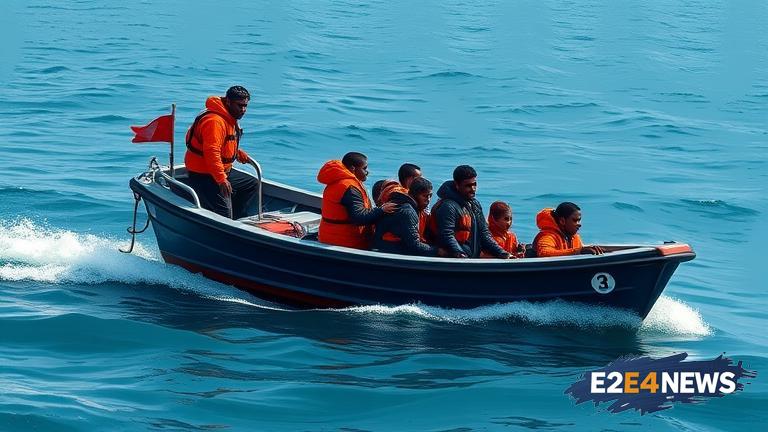The UK government has come under intense scrutiny for its proposal to deport migrants who arrive in the country via small boats. The plan, which aims to curb the rising number of asylum seekers, has been met with fierce opposition from human rights groups, charities, and opposition parties. Critics argue that the plan is inhumane, ineffective, and potentially illegal under international law. The government, however, maintains that the measure is necessary to prevent further loss of life at sea and to deter people from making the perilous journey. The small boats crisis has been a major concern for the UK government, with thousands of migrants attempting to cross the English Channel every year. Many of these migrants are fleeing war, persecution, or poverty in their home countries, and are seeking a safer and more prosperous life in the UK. The government’s plan to deport these migrants has been criticized for being too harsh and for failing to address the root causes of the crisis. Opposition parties have accused the government of using the migrant crisis as a political tool to distract from other issues, such as the economy and the NHS. Human rights groups have also raised concerns about the treatment of migrants in detention centers, where they are often held in poor conditions and without access to proper legal representation. The plan has also been criticized for being potentially illegal under international law, which prohibits the deportation of asylum seekers to countries where they may face persecution or harm. The UK government has argued that the plan is necessary to prevent further loss of life at sea, where many migrants have died attempting to cross the English Channel. However, critics argue that the plan will only serve to drive the migrant trade underground, making it more dangerous and lucrative for people smugglers. The government has also been accused of failing to provide adequate support and resources to migrants who are seeking asylum, leaving them vulnerable to exploitation and abuse. The small boats crisis has also raised concerns about the UK’s border security and the ability of the government to control its borders. The government has argued that the plan will help to deter migrants from attempting to cross the English Channel, but critics argue that it will only serve to push the problem further underground. The plan has also been criticized for being too focused on punishment and deportation, rather than providing a safe and legal route for migrants to seek asylum. The UK government has been accused of failing to work with other European countries to find a solution to the migrant crisis, and of instead pursuing a unilateral approach that is unlikely to be effective. The plan has also raised concerns about the impact on the UK’s reputation as a country that is committed to human rights and the rule of law. The government has argued that the plan is necessary to maintain public trust and confidence in the immigration system, but critics argue that it will only serve to undermine the UK’s reputation as a beacon of hope and freedom. The small boats crisis has also highlighted the need for a more comprehensive and sustainable approach to migration, one that addresses the root causes of the crisis and provides a safe and legal route for migrants to seek asylum. The UK government has been accused of failing to provide a clear and coherent strategy for dealing with the migrant crisis, and of instead relying on short-term fixes and gimmicks. The plan to deport migrants arriving in small boats is just the latest example of this approach, and has been widely criticized for being ineffective, inhumane, and potentially illegal.
